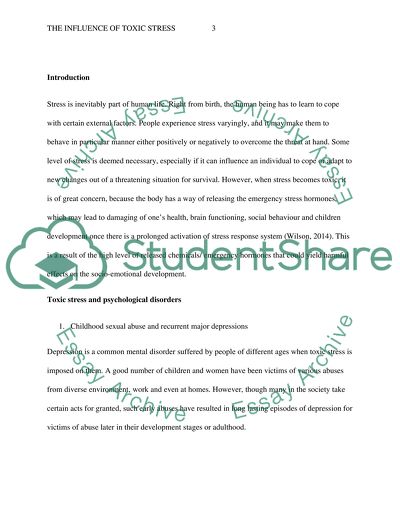Cite this document
(“The influence of toxic stress on socio-emotional development Research Paper”, n.d.)
The influence of toxic stress on socio-emotional development Research Paper. Retrieved from https://studentshare.org/psychology/1653180-the-influence-of-toxic-stress-on-socio-emotional-development
The influence of toxic stress on socio-emotional development Research Paper. Retrieved from https://studentshare.org/psychology/1653180-the-influence-of-toxic-stress-on-socio-emotional-development
(The Influence of Toxic Stress on Socio-Emotional Development Research Paper)
The Influence of Toxic Stress on Socio-Emotional Development Research Paper. https://studentshare.org/psychology/1653180-the-influence-of-toxic-stress-on-socio-emotional-development.
The Influence of Toxic Stress on Socio-Emotional Development Research Paper. https://studentshare.org/psychology/1653180-the-influence-of-toxic-stress-on-socio-emotional-development.
“The Influence of Toxic Stress on Socio-Emotional Development Research Paper”, n.d. https://studentshare.org/psychology/1653180-the-influence-of-toxic-stress-on-socio-emotional-development.


